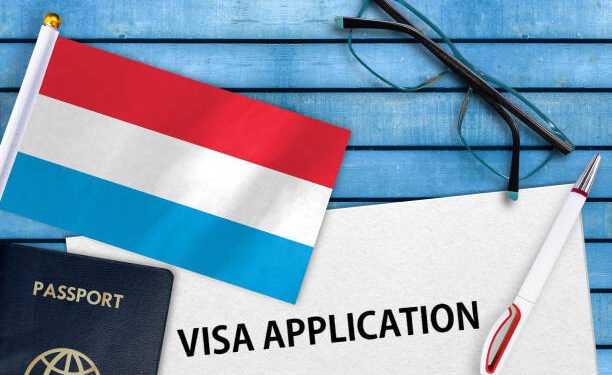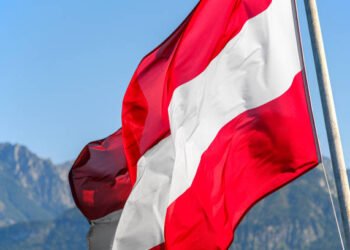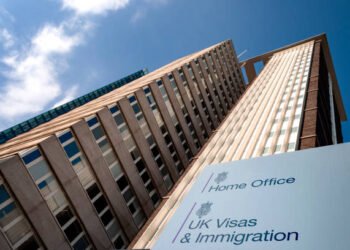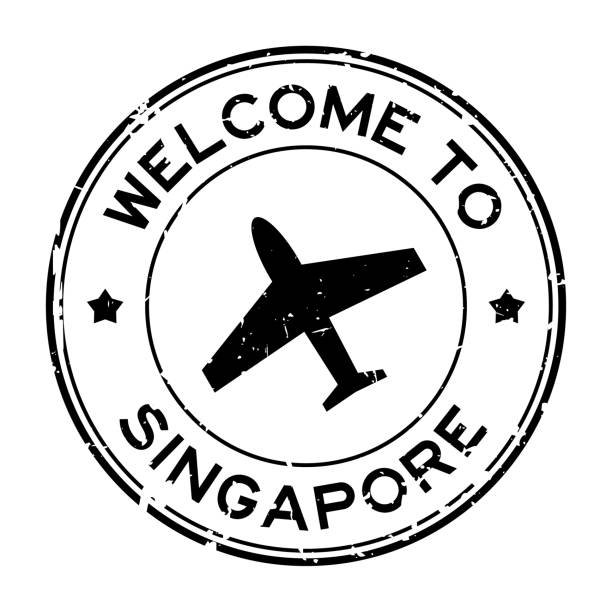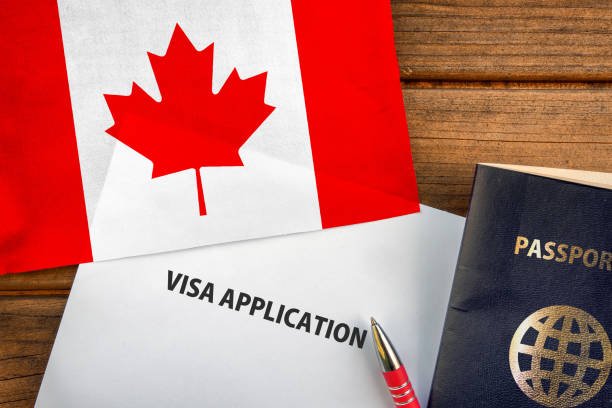Tucked in the heart of Europe and powered by one of the highest GDPs per capita in the world, Luxembourg is more than just a financial hub, it’s a gateway to a better life for immigrants. With growing demand for international workers and a range of visa sponsorship options, this small yet mighty country is opening its doors to skilled, unskilled, and entrepreneurial migrants alike. Whether you’re dreaming of building a career, reuniting with family, or simply settling into a peaceful, opportunity-rich society, Luxembourg might be your next destination.
Advertisement
Why Immigrants Are Choosing Luxembourg in 2025
Rising Labor Demand and Shortage of Local Workers
In 2025, a notable rise in demand for labor across several sectors in Luxembourg has been observed. The local workforce has not been sufficient to meet the growing requirements in industries such as healthcare, construction, ICT, and finance. As a result, employers have increasingly turned toward the global labor pool to fill these gaps. Immigration has been recognized by the government as a viable and necessary solution.
Stable Economy, High Wages, and Low Crime Rates
Luxembourg has been ranked among the wealthiest nations globally, with high GDP per capita and a stable economy. Job security and consistent economic growth have made it a favored destination. Additionally, the low crime rate and strong legal framework have created a safe environment for foreign workers and their families. High wages, particularly in skilled sectors, have allowed immigrants to enjoy a high standard of living.
Access to the EU Labor Market and Quality of Life
Being centrally located in Europe, Luxembourg has offered immigrants access to the broader European Union labor market. Once residency has been established, freedom of movement within the Schengen area has been granted. Quality of life has been enhanced by excellent healthcare, modern infrastructure, and a multilingual, multicultural population.
Advertisement
Types of Luxembourg Visas Available to Immigrants
Short-Stay Visa (Type C)
This visa has been issued for short-term visits up to 90 days within a 180-day period. It has been used primarily for tourism, attending business meetings, or participating in training. While not suitable for employment, it has served as an entry point for networking and job exploration.
Long-Stay Visa (Type D)
A Type D visa has been required for stays exceeding 90 days. This visa category has covered work permits, student visas, and family reunification. After arrival in Luxembourg, it must be converted into a residence permit. Application procedures have involved both the Ministry of Foreign Affairs and the Immigration Directorate.
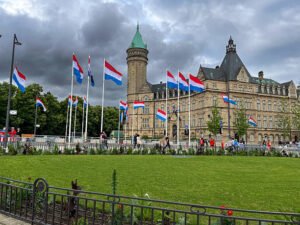
EU Blue Card for Highly Qualified Professionals
Highly skilled workers in sectors like ICT, engineering, and finance have qualified for the EU Blue Card. This residence permit has required a university degree and a job offer with a salary threshold above the national average. Blue Card holders have been granted access to benefits such as family reunification and eventual EU mobility.
Intra-Corporate Transfer (ICT) Permit
Multinational employees transferred to Luxembourg branches have applied for the ICT permit. This visa has facilitated the temporary transfer of managers, specialists, and trainees within the same company structure. Specific documentation has been required from both sending and receiving entities.
Seasonal and Temporary Work Visas
For lower-skilled roles in agriculture, tourism, and hospitality, seasonal work visas have been issued. These permits have been valid for a limited duration, typically less than a year, with a possibility of extension depending on employment contracts and sectoral needs.
Who Can Qualify for Visa Sponsorship in Luxembourg?
Skilled Professionals
Professionals with experience and qualifications in high-demand fields such as IT, accounting, engineering, and healthcare have been prioritized for visa sponsorship. Luxembourg’s labor shortage in specialized sectors has opened doors for non-EU nationals.
Unskilled Workers in Hospitality and Construction
Visa sponsorship has also been made available for roles in construction, cleaning, food service, and caregiving. Though the salary ranges have been lower, job security and the possibility of transitioning to permanent residence have attracted many immigrants.
International Students Eligible for Post-Study Work
Students graduating from Luxembourg institutions have been granted temporary residence permits to seek employment. Once job offers have been obtained, work permits and long-term visas have been sponsored by employers willing to retain local graduates.
Entrepreneurs and Investors
Visa routes for entrepreneurs and investors have encouraged foreign nationals to establish businesses in Luxembourg. A detailed business plan and proof of financial means have been essential. These visa holders have contributed to the local economy while obtaining residency for themselves and their families.
How to Apply for Luxembourg Visa with Sponsorship
Getting a Job Offer
The first step has involved securing a job offer from a Luxembourg-based employer. Job seekers have used portals like EURES, LinkedIn, and ADEM.lu. CVs have been tailored to match EU standards, and virtual interviews have become increasingly common.
Employer’s Role in Applying for Work Permit
Once a candidate has been selected, the employer has submitted a sponsorship application on behalf of the worker. This has included documentation proving the non-availability of local or EU talent for the position. Approval has been granted by the Ministry of Labour.
Submitting Visa Application
Following employer approval, the candidate has submitted a visa application at the nearest Luxembourg consulate. The application package has included a job contract, passport, proof of accommodation, and travel insurance.
Processing Time and Fees
Visa processing has taken between 4 to 12 weeks. Fees have ranged from EUR 50 to EUR 80 depending on visa type. Additional fees have been incurred for document translation and legal certifications.
Top Sectors Hiring Foreign Workers in Luxembourg
Finance and Banking
As home to major global financial institutions, Luxembourg has hired thousands of professionals in asset management, accounting, and corporate banking. Fluency in English and French has been advantageous.
ICT and Cybersecurity
With its digital infrastructure expanding, IT engineers, software developers, and cybersecurity analysts have been in high demand. Remote-friendly roles and EU Blue Card eligibility have made this sector attractive.
Logistics and Transport
Luxembourg’s central location has made it a logistics hub. Jobs in warehouse operations, transport planning, and supply chain management have been offered to both skilled and semi-skilled workers.
Healthcare and Eldercare
Doctors, nurses, and eldercare assistants have filled vacancies in hospitals and retirement homes. Due to the multilingual nature of Luxembourg, knowledge of German or French has often been required.
Hospitality and Retail
Restaurants, hotels, and shopping centers have consistently employed foreign nationals for front desk, kitchen, cleaning, and support staff roles. These jobs have provided entry-level options for unskilled immigrants.
Life in Luxembourg as an Immigrant
Cost of Living and Housing Options
Although Luxembourg has been considered expensive, shared accommodations and government-subsidized housing have helped manage costs. Immigrants have often lived in suburbs with affordable transport links.
Healthcare System and Insurance
Healthcare services in Luxembourg have been ranked among the best in Europe. All residents, including foreign workers, have been covered by the national health insurance fund. Private options have also been made available.
Language Expectations
Though Luxembourgish is the national language, French and German have been widely used in business and public services. Basic knowledge of one official language has helped with integration and employment.
Cultural Integration and Daily Life
A multicultural society has been fostered in Luxembourg, where festivals, international schools, and community events have welcomed foreign residents. Support centers have provided orientation, language training, and legal aid.
Pathways to Permanent Residency and Citizenship
Residency Requirements and Timeframes
After five years of legal residence, immigrants have become eligible to apply for long-term EU residency. Continuous employment, tax contributions, and language skills have been key factors.
How to Apply for Long-Term Residence
Applicants have submitted forms through the Immigration Directorate, along with rental agreements, employment contracts, and integration course certificates. Processing has taken up to six months.
Naturalization Process and Dual Citizenship
Citizenship by naturalization has been possible after five years of residence (seven years for some categories). A language test in Luxembourgish and a civic integration course have been mandatory. Dual citizenship has been permitted under certain conditions.
Common Mistakes and How to Avoid Visa Rejection
Incomplete Documentation
One of the most common reasons for rejection has been incomplete paperwork. All documents must be translated and certified as required.
Applying Without Employer Sponsorship
For work-related visas, applications without an official job offer or employer sponsorship have been declined. Verification through company registration and approval by the Ministry of Labour has been necessary.
Not Meeting Language or Salary Thresholds
Especially for the EU Blue Card, failure to meet salary or educational criteria has led to denial. Accurate job descriptions and qualifying degrees must be presented.
Tips for Error-Free Submission
It has been recommended to review all application steps on guichet.lu, work with licensed immigration consultants, and double-check expiration dates on passports and health insurance.
Support Resources for Immigrants in Luxembourg
Government Portals and Visa Information
The official portal www.guichet.lu has provided updated procedures, application forms, and FAQs related to visa and residence permits.
NGOs and Immigrant Associations
Organizations such as ASTI and CLAE have supported immigrant families with legal counseling, social integration, and advocacy services.
Language Courses and Job Search Assistance
Language schools funded by the state have offered free or discounted courses in French, German, and Luxembourgish. Job centers like ADEM have helped with resume writing, training programs, and employer matchmaking.


